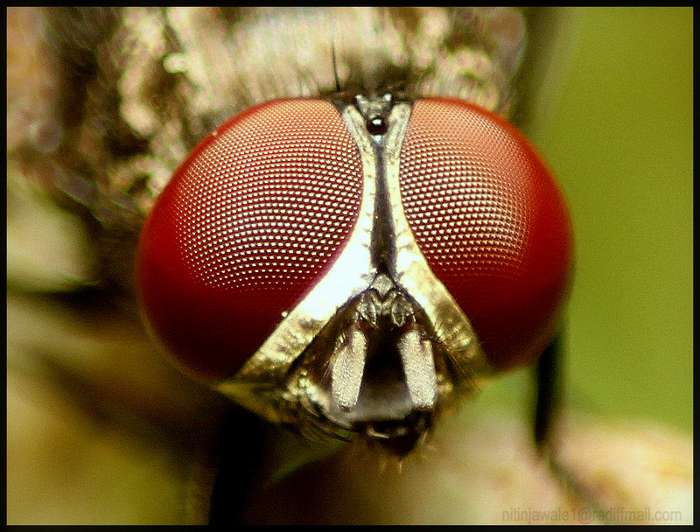FWP:
SETS == GROTESQUERIE
EYES {3,1}
JIGAR: {2,1}
Some modern editors (including Hamid) have ;xuu;N-naabah , 'pure blood', instead of ;xuun-aabah , 'bloody water' or 'bloody tears' (see the definition above). As always, I follow Arshi.
Right after the irresistible {62,5}, which shows the ghazal world at its most captivating, comes this one which reminds us that the ghazal world is also an acquired taste, and that we no longer have the chance to acquire that taste through what once were the normal channels. So we have to work at it, and try to wrap our minds around some of its stranger patterns of imagery. This verse falls into the category of what I would call grotesquerie; for more on this, see {39,3}.
Are we really supposed to picture the lover with a number of extra eyes growing out of his head, each of them spouting or scattering 'bloody water' like a small horizontal volcano, so that he can efficiently vent all the blood that's boiling up out of his liver? Surely we're not: we're supposed to keep the image on an abstract level. The many blood-scattering eyes must remain a mere figure of speech, from which we should extract only the idea of how intensely the lover desires to weep. Once we've 'got' this idea, we've 'got' the whole verse, as far as I can see. For a tolerably non-grotesque use of roses as blood-scattering eyes, see {25,7}. And for a non-grotesque wish for 'a number of' hearts, see {179,3}.
But because so much of the ghazal's genius involves taking
such patterns of imagery seriously, the choice in this case is between grotesquerie
and a certain degree of vitiation, a made-for-prose-paraphrase quality. Maybe
the verse is meant humorously, but if so then the humor isn't really very
captivating. This is not one of his truly successful verses, to my mind. Compare
it to the previous verse-- what a world of difference!

Nazm:
'The blood of the liver is in agitation' is informative [;xabariyah], and after it, to the end of the verse is a longing [in the contrafactual form] so that the author has mixed the information with inshaa . And in poetry inshaa , as compared to information [;xabar], gives more pleasure. (62-63)
== Nazm page 62; Nazm page 63